Maui wildfire survivors begin moving in to Laʻikū temporary housing project in Lahaina
The first four tenants have moved into newly completed units in the La‘ikū temporary housing project along Lahainaluna Road, Gov. Josh Green, M.D., announced.
Construction of this housing reflects a partnership between Governor Green’s Administration including the Hawaiʻi Department of Transportation (HDOT) and the Hawaiʻi Department of Education (DOE), as well as the Council for Native Hawaiian Advancement (CNHA) and the Hawaiʻi Community Foundation (HCF) Maui Strong Fund. That survivors have already moved into the first units, is another positive stride forward for community members who lost homes in the devastating historic Maui wildfires of Aug. 8, 2023.
“It is heartwarming to welcome the first four families to La‘ikū as we continue to work with many dedicated partners across our state to provide safe and secure longer-term housing to survivors,” said Green. “La‘ikū is one of many collaborative housing initiatives that is helping to support individuals and families as they rebuild their lives.”
La‘ikū will provide 16 two-bedroom, one-bath units at 560 sq. ft. each. The homes are being built on approximately two acres of land that was previously acquired by the HDOT as part of the Lahaina Bypass project.
“We are honored to do our part to help our ‘ohana who have been impacted by the wildfires,” said HDOT Director Ed Sniffen. The $3.9 million project is funded by HCF and the state of Hawai‘i and developed by CNHA, which has a five-year revocable permit to use the HDOT parcel at no cost. Completion is scheduled for September 2024.
“The space was named La‘ikū, which means ‘a calming space,’ a fitting name for families affected by the wildfires, some of whom have moved six or seven times,” said Kūhiō Lewis, CEO of CNHA. “This project represents hope for Lahaina and demonstrates the power of community organizations working alongside the government.”
“Providing safe and secure housing for Maui’s fire survivors is one of the key funding priorities for the Maui Strong Fund,” said Micah Kāne, HCF CEO and president. “We recognized early on that in order to ensure that every person has a place to call home, we needed deep collaboration by government, the nonprofit sector and philanthropy. Today marks an important milestone for Maui’s recovery and the start of a new chapter for the families moving into La‘ikū.”
Monthly rent for homes in La‘ikū will be $1,750, which tenants can pay via personal funds, rental assistance from FEMA, or insurance proceeds. Water and sewer services, up to $75 per month as well as trash removal, are included for each unit. Family dogs and cats of up to 50 pounds are welcomed in the neighborhood.
There is no income limit for applicants, whose eligibility for tenancy will be verified as wildfire-impacted by the CNHA Kākoʻo Maui Resource Center. Families who may have temporarily relocated to other islands are also eligible to apply. Units must be occupied by a minimum of two, or up to a maximum of five people. Parking is limited to two vehicles per unit. Street parking is not allowed. Applications for Laʻikū may be submitted online via helpingmaui.org or by visiting the CNHA Kākoʻo Maui Resource Center at Maui Mall during regular business hours.





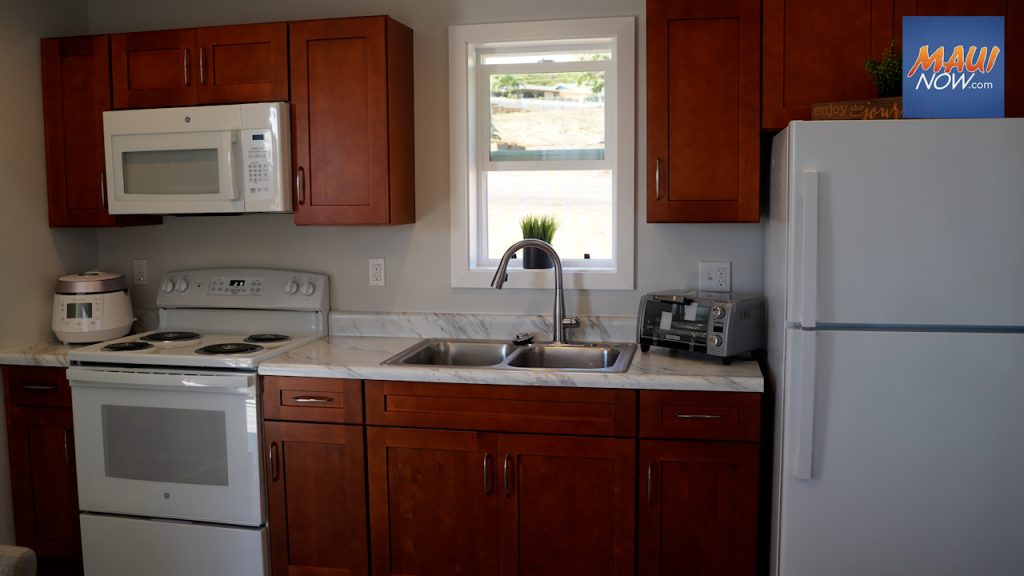
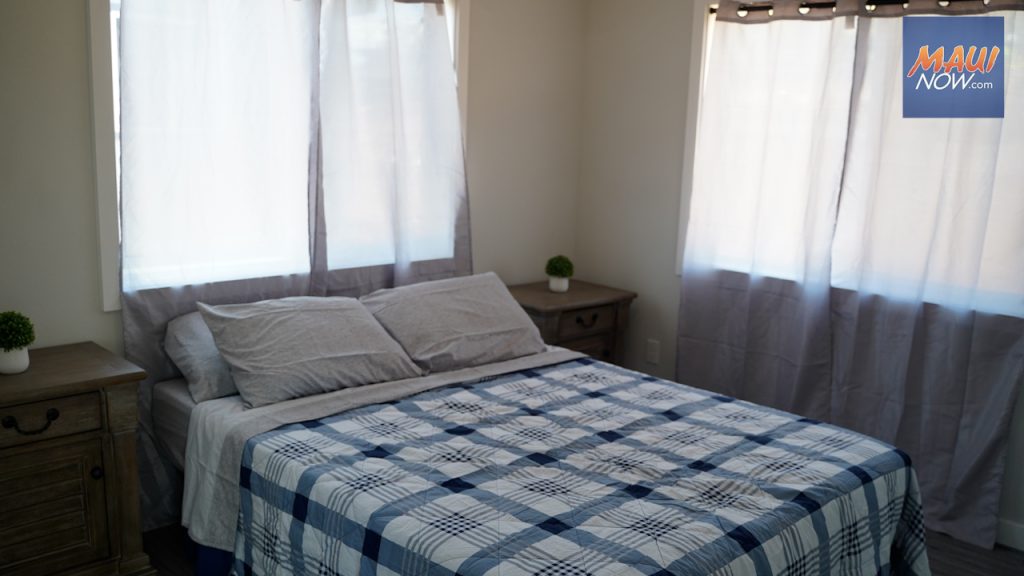
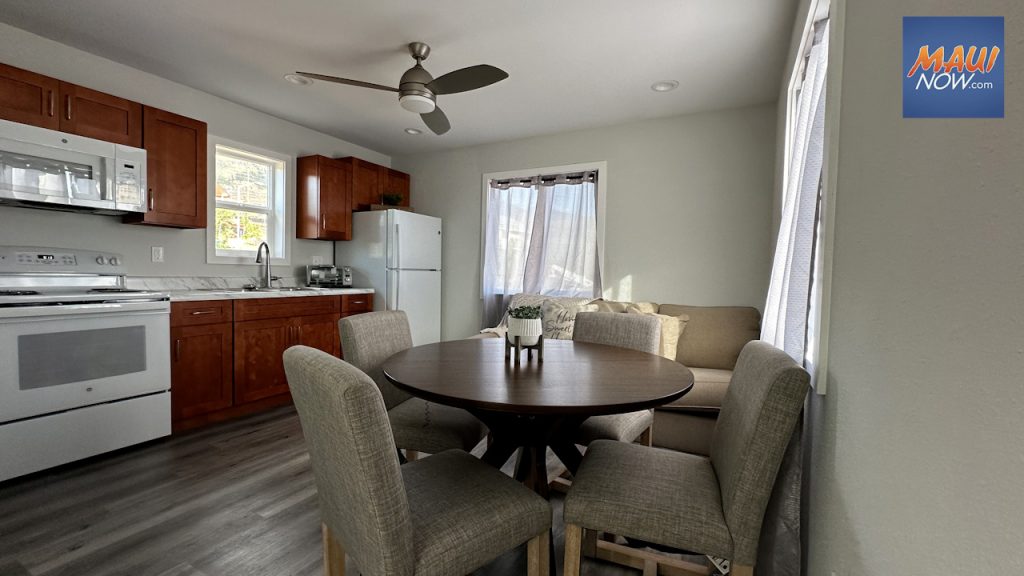
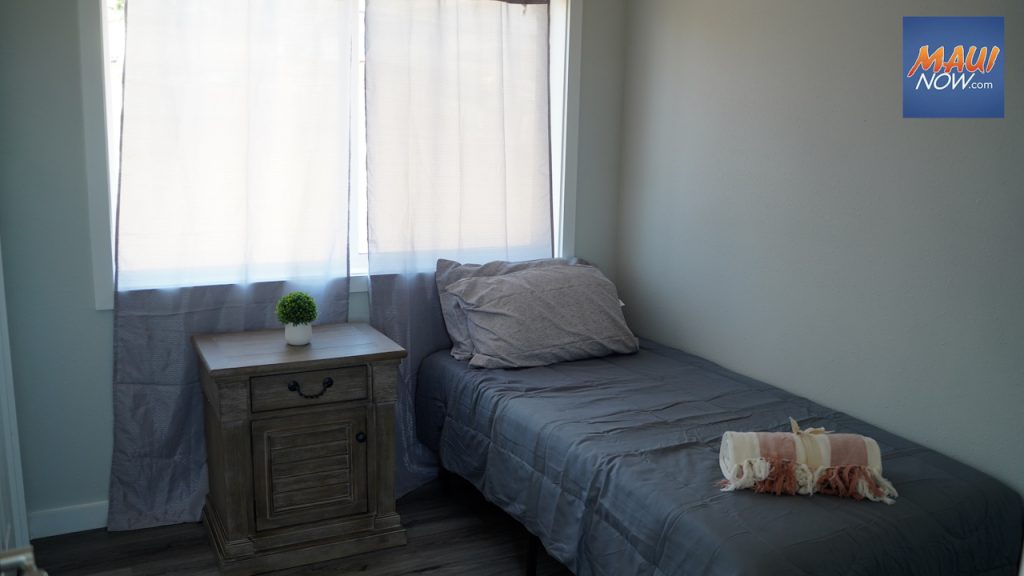
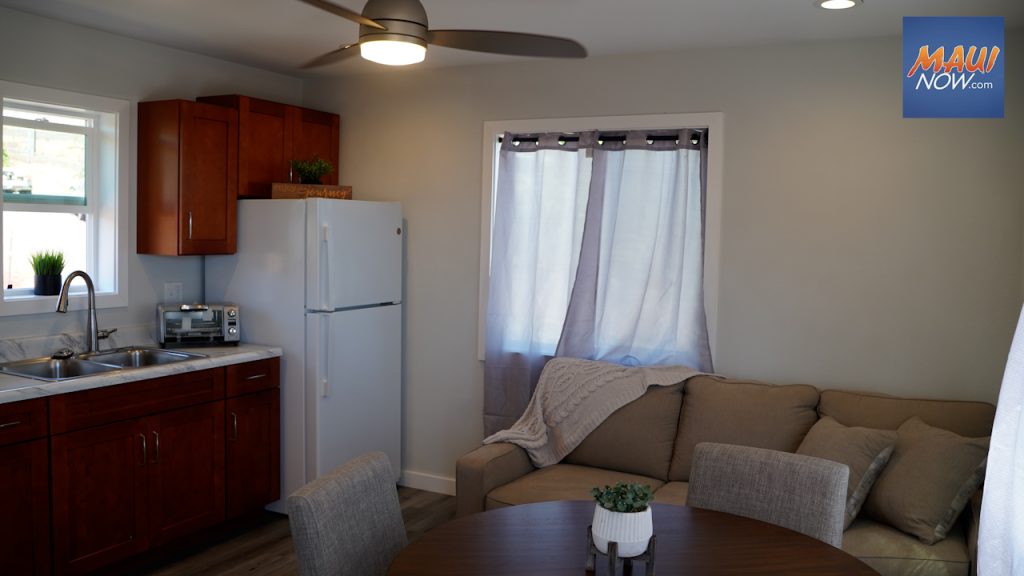
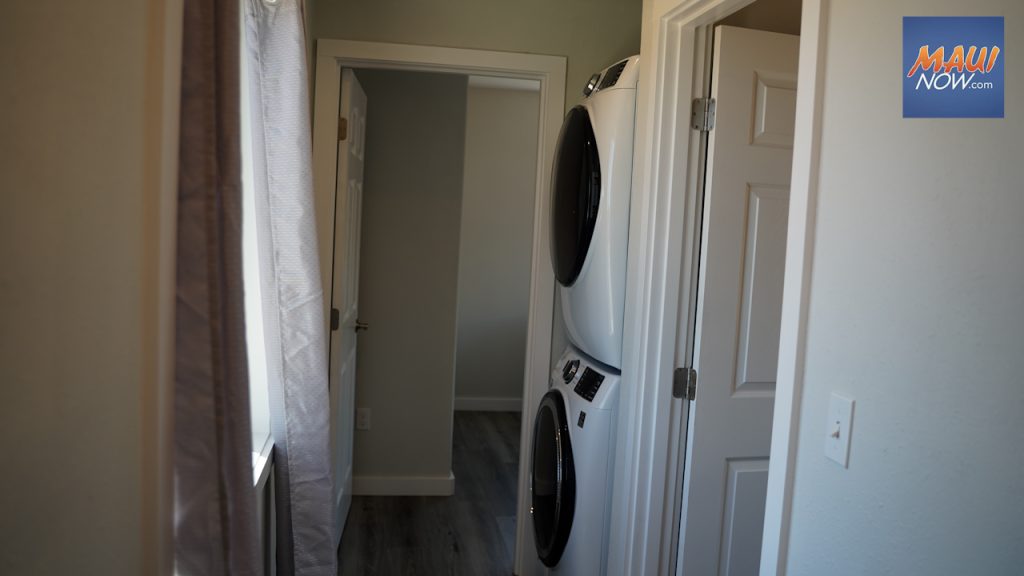










_1768613517521.webp)

